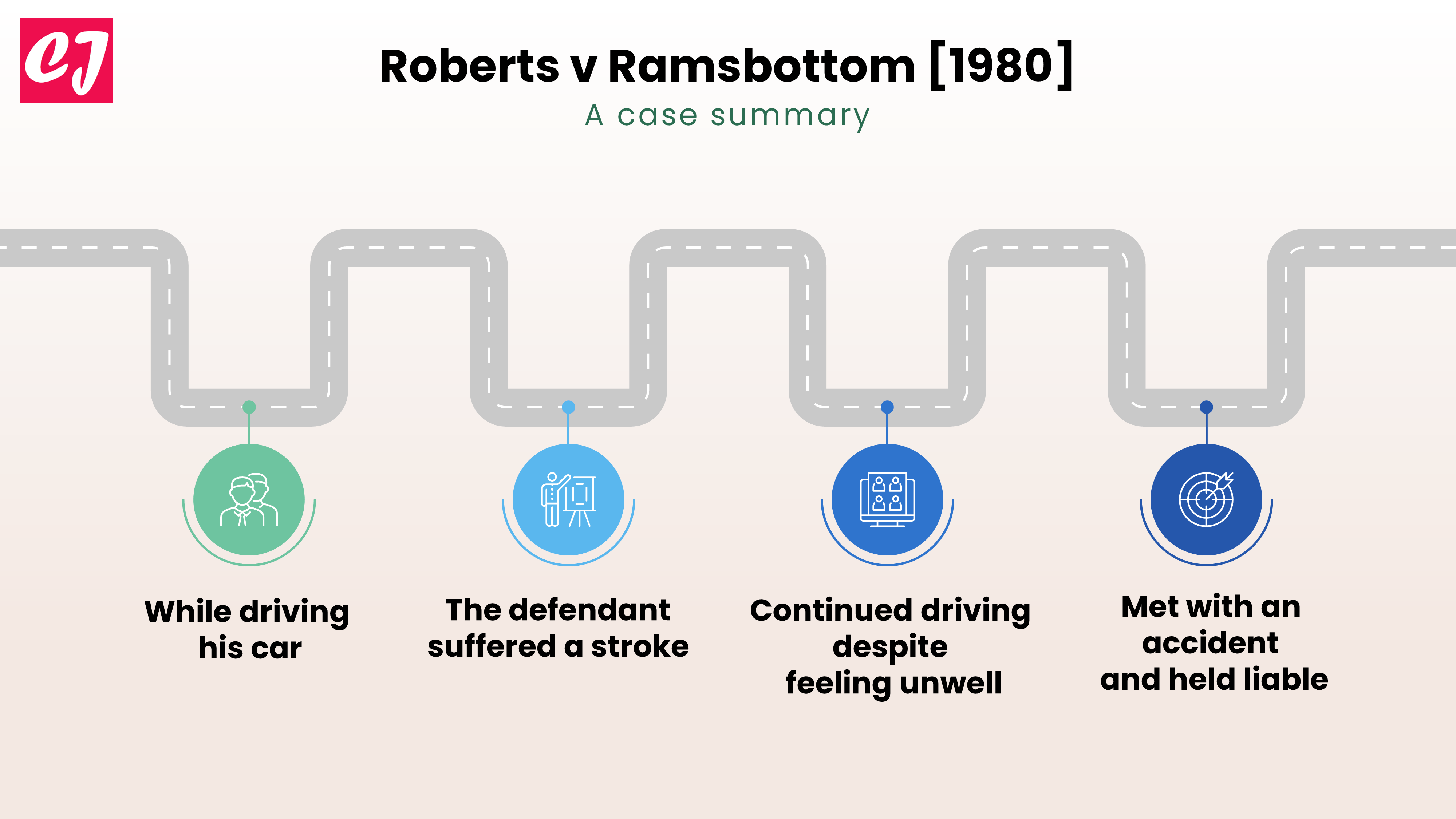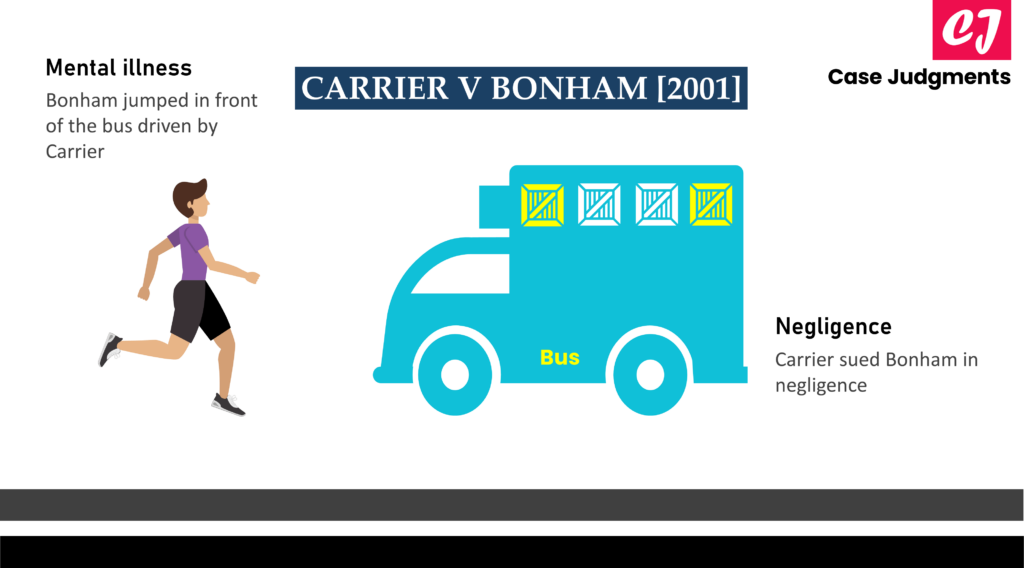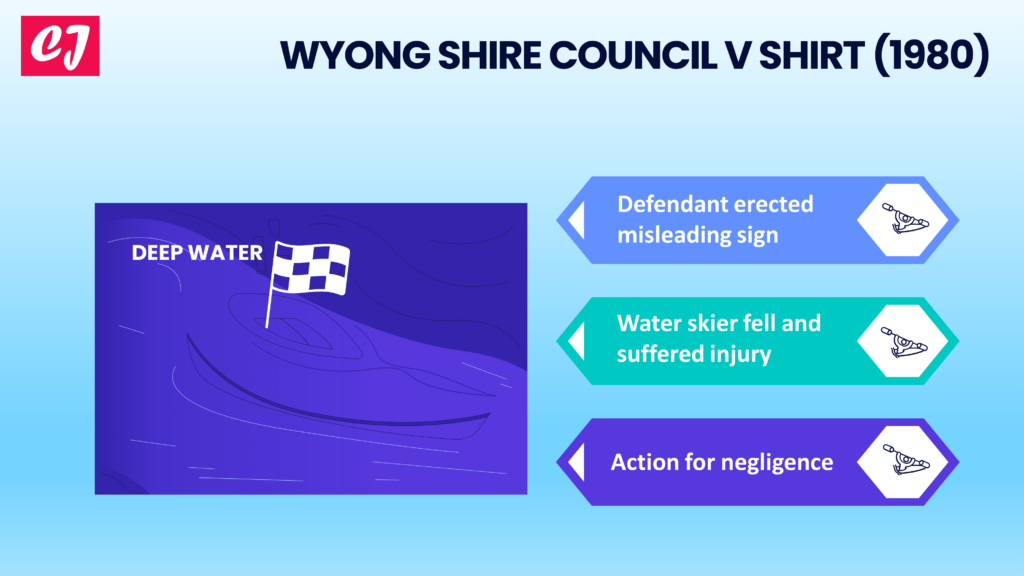
Roberts v Ramsbottom [1980]: A Quick Summary
Case name & citation: Roberts v Ramsbottom [1980] 1 WLR 823; [1980] 1 All ER 7
Jurisdiction: England and Wales
The learned judge: Neill J.
Area of law: Standard of care; Accident caused after being affected by a medical condition
What happened in Roberts v Ramsbottom?
Arthur Ramsbottom crashed his car into a stationary van and a parked vehicle. The plaintiff who suffered injuries sued the defendant.
The defendant was found guilty of negligence and liable for the accident even though the crash was caused because Ramsbottom had unknowingly suffered a stroke (cerebral hemorrhage) whilst he was driving. This impaired his ability to drive safely.
There was no prior history of strokes with Ramsbottom and also there were no warning signs that he was about to have one.
If Ramsbottom had become completely unconscious due to the stroke, the Court could have given him the defense of automatism. But, because he continued to drive with his consciousness clouded, this defense was not available to him. He was held liable because he continued to drive after suffering a seizure that affected his reactions and that rendered him unfit to do so. He had not completely lost control of his actions and had some awareness of what was happening. Thus, he should have stopped his car immediately.
Quote from the case
Neill J. stated as under:
“I am satisfied that in a civil action, a similar approach should be adopted. The driver will be able to escape liability if his actions at the relevant time were wholly beyond his control. The most obvious case is sudden unconsciousness. But if he retained some control, albeit imperfect control, and his driving, judged objectively, was below the required standard, he remains liable.”
Note:
The decision in Roberts v Ramsbottom was partly disapproved by the Court of Appeal in Mansfield v Weetabix [1998]. Nevertheless, they held that it was rightly decided. As opposed to Roberts v Ramsbottom, the defendant in Mansfield v Weetabix was not found at fault and his standard of care was held to the standard of a sick person unaware of his condition.
Summing up Roberts v Ramsbottom
In short, Roberts v Ramsbottom holds that a driver can be held liable for negligence if he continues to drive despite being aware of his incapacity or despite feeling unwell (in this case due to a stroke).
List of references:
- https://repository.londonmet.ac.uk/7175/1/Barrie%20Guide%20to%20Tort%202022%20VOLUME%20ONE.pdf
- https://www.bartleby.com/essay/The-Tort-Law-Imposes-Liability-FKY58GWXGK85
- https://swarb.co.uk/roberts-v-ramsbottom-1980/
You might also like:
More from tort law:

